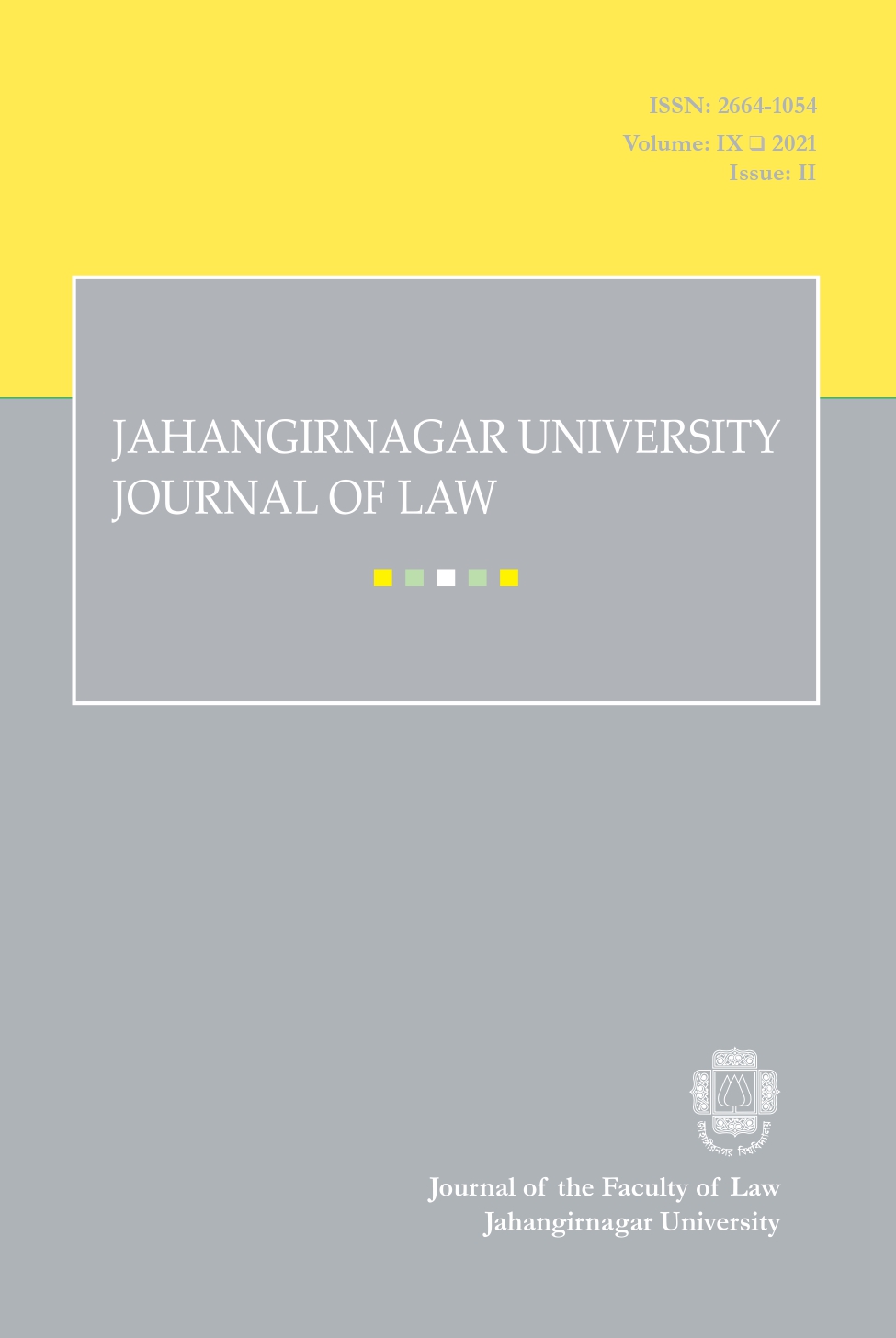Necessity of Inserting Climate Change Clause in the Transboundary Water Agreements of South Asia
Main Article Content
Abstract
The transboundary water agreements are created worldwide in
negotiation among different States to avoid any conflict relating to shared
water resources and South Asia is not an exception. South Asia is a region having conflict over shared water resources due to water scarcity for an over growing population. One of the major challenges associated with the management of transboundary water resources is to develop suitable mechanisms for managing shared water resources while adapting the impact of climate change as climate change has a major impact on water scarcity. The amount of water may increase or decrease due to climate change in any shared water resources of South Asia creating impact on water allocation system; the consequence of which is conflict over shared water in South Asia. Therefore, the impact of climate change should be taken into consideration for water resource planning, management and decision making in the transboundary water agreements of South Asia which is absent until now. This study unveils the legal as well as institutional arrangements to allocate shared water in transboundary water agreements of South Asia. It suggests some flexible mechanisms or climate change clause to be included in the transboundary water agreements of South Asia and the necessity behind doing so to adapt the impact of climate change.

